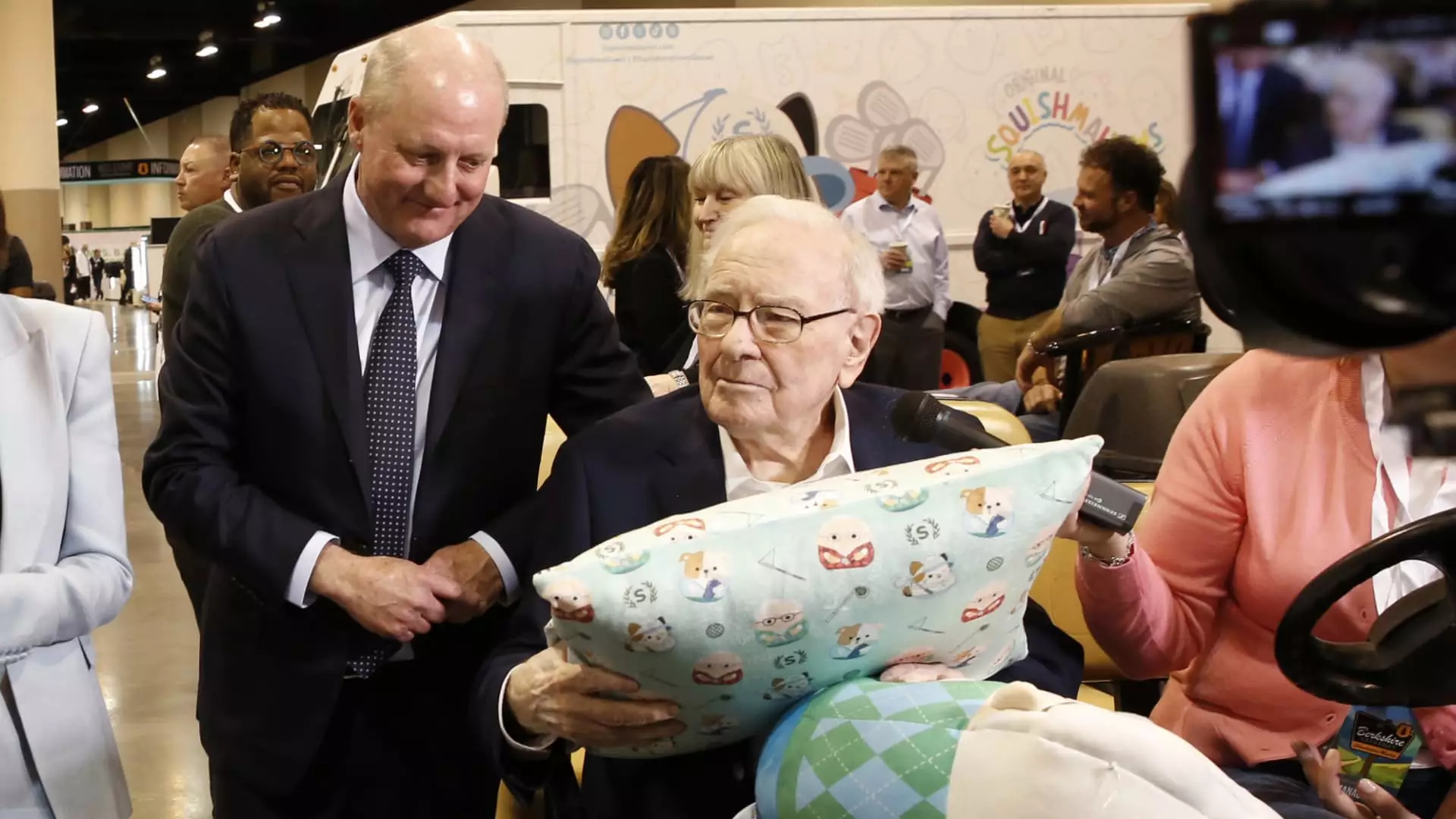When Warren Buffett announced his intention to step down as CEO of Berkshire Hathaway at the end of the year, the financial world collectively held its breath. With over $24 million in net inflows pouring into Berkshire’s Class B stock in just one day, it was clear that this was not merely a “cult of Buffett” moment. The enthusiastic response from retail investors indicated a surprising level of confidence in Greg Abel, the handpicked successor, despite the turbulence surrounding such a monumental change. It’s fascinating to witness that even as the stock declined by over 5%, signaling trepidation about the future, retail traders exhibited an unwavering belief in the resilience of Berkshire Hathaway.
As someone who has been observing market dynamics for years, I can’t help but marvel at the resilience of the everyday investor. It suggests that although many fear the shift from a legendary figure like Buffett, their conviction in the fundamentals of Berkshire remains steadfast. Simply put, they are betting on the company’s enduring legacy, built on a foundation of stability and prudence, rather than solely on the charisma of its long-time leader.
Buffett’s Departure: A Double-Edged Sword
The stark contrast between Buffett’s departure and Abel’s entrance rings loudly within the halls of Omaha, where the annual shareholder meeting has become nothing short of a pilgrimage for devoted followers. Many shareholders envelop themselves in the lore surrounding Buffett, from donning shirts emblazoned with his likeness to eagerly awaiting plush toys modeled after him. Yet, while some may view Abel’s ascendancy as the end of an era, it presents an opportunity for a fresh perspective.
Abel may not boast the famed stock-picking prowess of Buffett, but perhaps it is time to shift the focus from a singular investment genius to a collaborative approach that emphasizes the collective strengths of Berkshire’s management team. The internal dynamics could potentially usher in an era characterized by innovation and diversification that goes beyond Buffett’s legacy.
Market Reactions and Investor Sentiment
Market reactions can often defy logic, and this was evident when retail investors achieved the highest net inflows into Berkshire since 2016, even after the announcement of a considerable leadership transition. If the average investor sentiment were to follow conventional wisdom, one would expect a pullback in enthusiasm with the departure of a revered leader. Instead, we see an outpouring of financial commitment that signals a deeper understanding — or perhaps a metacognitive trust — in the adaptability of Berkshire Hathaway.
Is this a harbinger of a bright future under Abel or merely a trap door leading to uncertainty? The fact that many investors redirected their financial convictions towards Berkshire after Buffett’s announcement signals resilience in the face of transition. Perhaps they are betting not just on the company but further affirming their belief in the concept that Berkshire Hathaway is more than just a stock; it’s a bastion of financial responsibility and prudence.
Abel’s Challenge: Building on a Legacy
The anticipation surrounding Abel’s takeover transcends stock performance and stock-picking skills. Rather, it poses a unique challenge: how can he maintain Buffett’s ethos while steering Berkshire into new territory? In a world rife with volatility, Abel’s leadership will be put to the test, particularly as questions loom regarding his ability to replicate the acumen that made Buffett a household name.
Abel’s advantage lies in Buffett’s commitment to remain involved, a move meant to reassure anxious shareholders. The structure of Berkshire’s management team could well be a fortifying pillar as Abel charts the company’s future, provided he can deftly balance the revered traditions with necessary innovation. The combination of Buffett’s legacy and Abel’s fresh leadership could create a compelling narrative, one that enshrines the company’s reputation while inviting new opportunities.
The Path Ahead: Trusting the Process
Despite recent market fluctuations, including the 5% drop in shares post-announcement, Berkshire Hathaway still commands a robust position within the market. The company’s cash reserves, exceeding $330 billion, give it unparalleled flexibility to capitalize on opportunities in uncertain economic climates. This financial strength makes Berkshire not only a historical giant but also a potential safe haven amid market downturns.
For everyday investors, the allure of Berkshire is not simply about stock prices but about the broader vision of sustainable growth. Many retail investors, buoyed by Buffett’s own admission that he plans to remain close by, seem to be wagering on a legacy that combines proven strategies with calculated risks that may redefine Berkshire without diminishing its defining character. This steadfast trust in the process—highlighting a collective belief in long-term value—is what elevates this moment in investing history from mere speculation to a testament of faith in a timeless institution.

